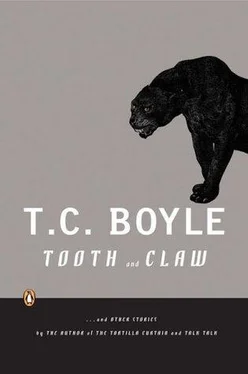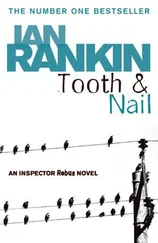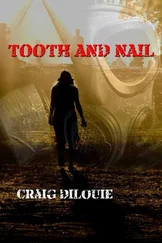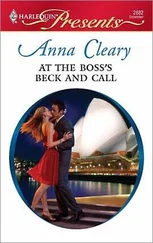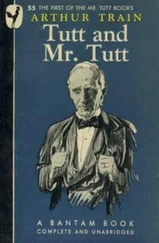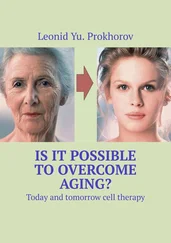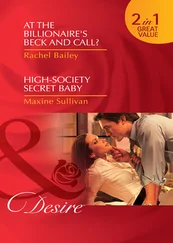I SUPPOSE THERE ARE several layers of irony here, not the least of which is that I wasn’t capable of looking out for myself, but I buried all that at the bar and when I saw Robert Rowe in homeroom the next morning, I felt nothing more than a vague irritation. He was wearing a tie-dyed shirt — starbursts of pink and yellow — under the parka and he’d begun to kink his hair out in the way I wore mine at night, but that had to be a coincidence, because to my knowledge he’d never seen me outside of school. It was possible, of course. Anything was possible. He could have seen me coming out of Chase’s or stopped in my car along South Street with Mike or Cole, looking to score. I kept my head down, working at my papers — the endless, hopeless, scrawled-over tests and assignments — but I felt his eyes on me the whole time. Then the bell rang and he was gone with the rest of them.
I was home early that evening, looking for sustenance — hoping to find my mother in the kitchen stirring something in a pot — because I was out of money till payday and Cole was lying low because his mother had found a bag of pot in his underwear drawer and I felt like taking a break from the cottage and music and dope. Just for the night. I figured I’d stay in, read a bit, get to bed early. My mother wasn’t there, though. She had a meeting. At school. One of the endless meetings she had to sit through, taking minutes in shorthand, while the school board debated yet another bond issue. I wondered about that and wondered about Jerry Reilly too.
My father was home. There was no other place he was likely to be — he’d given up going to the tavern or the diner or anyplace else. TV was his narcotic. And there he was, settled into his chair with a cocktail, watching Victory at Sea (his single favorite program, as if he couldn’t get enough of the war that had robbed him of his youth and personality), the dog, which had been young when I was in junior high myself, curled up stinking at his feet. We exchanged a few words— Where’s Mom? At a meeting. You going to eat? No. A sandwich? I’ll make you a sandwich? I said no . — and then I heated a can of soup and went upstairs with it. For a long while I lay on the floor with my head sandwiched between the speakers, playing records over and over, and then I drifted off.
It was late when I woke — past one — and when I went downstairs to use the toilet, my mother was just coming in the door. The old dog began slapping his tail on the carpet, too arthritic to get up; the lamp on the end table flicked on, dragging shadows out of the corners. “You just getting in?” I said.
“Yes,” she said, her voice hushed. She was in her work clothes: flocked dress, stockings and heels, a cloth coat, no gloves, though the weather had turned raw.
I stood there a moment, listening to the thwack of the dog’s tail, half-asleep, summoning the beat of an internal rhythm. I should have mounted the stairs, should have gone back to bed; instead, I said, “Late meeting?”
My mother had set her purse down on the little table inside the door reserved for the telephone. She was slipping out of her coat. “We went out for drinks afterward,” she said. “Some of us — me and Ruth, Larry Abrams, Ted Penny.”
“And Jerry? What about him — was he there?”
It took a moment, the coat flung over the banister, the dog settled back in his coil, the clank of the heat coming on noisy out of all proportion, and then she turned to me, hands on her hips, and said, “Yes, Jerry was there. And you know what — I’m glad he was.” A beat. She swayed slightly, or maybe that was my imagination. “You want to know why?”
There was something in her voice that should have warned me off, but I was awake now, and instead of going back upstairs to bed I just stood there in the dim arc of light the lamp cast on the floor and shrugged my shoulders. She lifted her purse from the telephone stand and I saw that there was something else there, a metal case the size of the two-tiered deluxe box of candy I gave her for Christmas each year. It was a tape recorder, and she bent a moment to fit the plug in the socket next to the phone outlet. Then she straightened up and gave me that look again — the admonitory look, searing and sharp. “I want you to listen to something,” she said. “Something a friend of Jerry’s — he works for the Peterskill police department, he’s a detective — thought you ought to hear.”
I froze. There was no time to think, no time to fabricate a story, no time to wriggle or plead, because my own voice was coming at me out of the miniature speaker. Hey , I was saying, you coming over or what? It’s like past nine already and everybody’s waiting—
There was music in the background, cranked loud—“Spinning Wheel,” the tune of that fall, and we were all intoxicated by David Clayton Thomas and the incisiveness of those punched-up horns — and my mind ran through the calendar of the past week, Friday or Saturday at the cottage in the woods, Cole running late, the usual party in progress…
Yeah, sure , I heard Cole respond. He was at his mother’s — it was his mother’s birthday. Just as soon as I can get out of here .
Okay, man , I said. Catch you later, right?
That was it. Nothing incriminating, but incrimination wasn’t the point of the exercise. It took me a moment, and then I thought of Haze, his sudden appearance in our midst, the glad-handing and the parceling out of the cool, and then I understood why he’d come to us — the term “infiltrated” soared up out of nowhere — and just who had put him up to it. I couldn’t think of what to say.
My mother could, though. She clicked off the tape with a punch of her index finger. “My friend said if you knew what was good for you, you’d stay clear of that place for a while. For good.” We stood five feet apart. There was no embrace — we weren’t an embracing family — no pat on the back, no gesture of any kind. Just the two of us standing there in the half-dark. When she spoke finally her voice was muted. “Do you understand what I’m telling you?”
AS SOON AS I got out of work the next day I changed my clothes and went straight to the cottage. It was raining steadily, a cold gray rain that drooled from the branches of the trees and braided in the gutters. Cole’s Bug was parked on the street as I drove up, but I didn’t park beside him — I drove another half mile on and parked on aside street, a cul-de-sac where nobody would see the car. Then I put my head down and walked up the road in the rain, veering off into the woods the minute I saw a car turn into the street. I remember how bleak everything looked, the summer’s trash revealed at the feet of the denuded trees, the weeds bowed and frost-burned, leaves clinging to my boots as if the ground were made of paste. My heart was pounding. It was a condition we called paranoia when we were smoking, the unreasoning feeling that something or somebody is about to pounce, that the world has become intractably dangerous and your own vulnerability has been flagged. But no, this wasn’t paranoia: the threat was real.
The hair was wet to my scalp and my jacket all but ruined by the time I pushed through the front door. The house was quiet, no music bleeding through the speakers, no murmur of voices or tread of footsteps. There was the soft fading scratch of one of the cats in the litter pan in the kitchen, and that was it, nothing, silence absolute. I stood in the entryway a moment, trying to scrape the mud and leaves from my boots, but it was hopeless, so finally I just stepped out of them in my stocking feet and left them there at the door. I suppose that was why Suzie and Cole didn’t hear me coming — I hadn’t meant to creep up on them, hadn’t meant anything except to somehow come round to tell them what I knew, what I’d learned, warning them, sparing them, and as I say my heart was going and I was risking everything myself just to be there, just to be present — and when I stepped into the living room they gave me a shock. They were naked, their clothes flung down beside them, rolling on a blanket in sexual play — or the prelude to it. I suppose it doesn’t really matter at this juncture to say that I’d found her attractive — she was the pretty one, always that — or that I felt all along that she’d favored me over Cole or Nicky or any of the others? That didn’t matter. That had nothing to do with it. I’d come with a warning, and I had to deliver it.
Читать дальше
